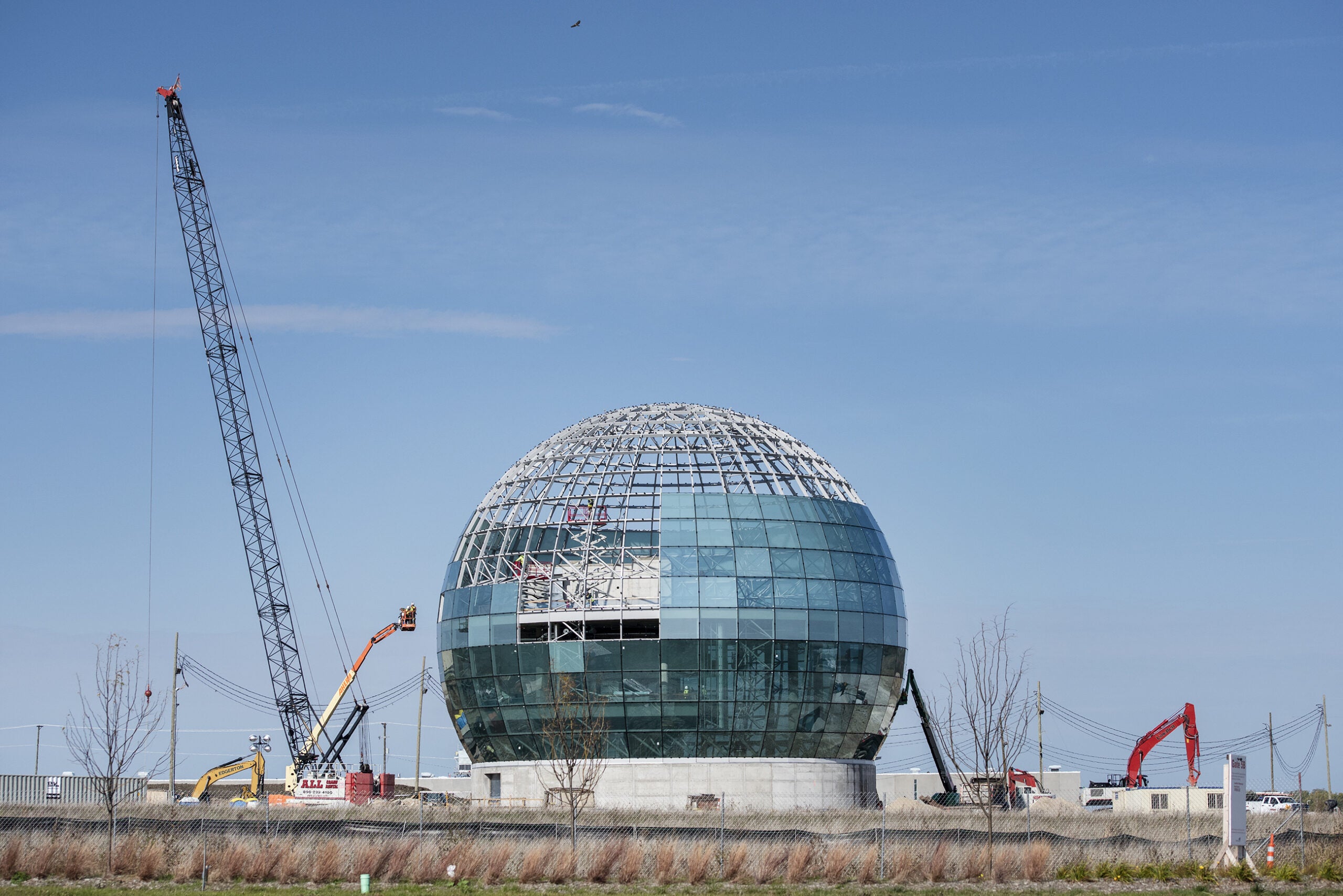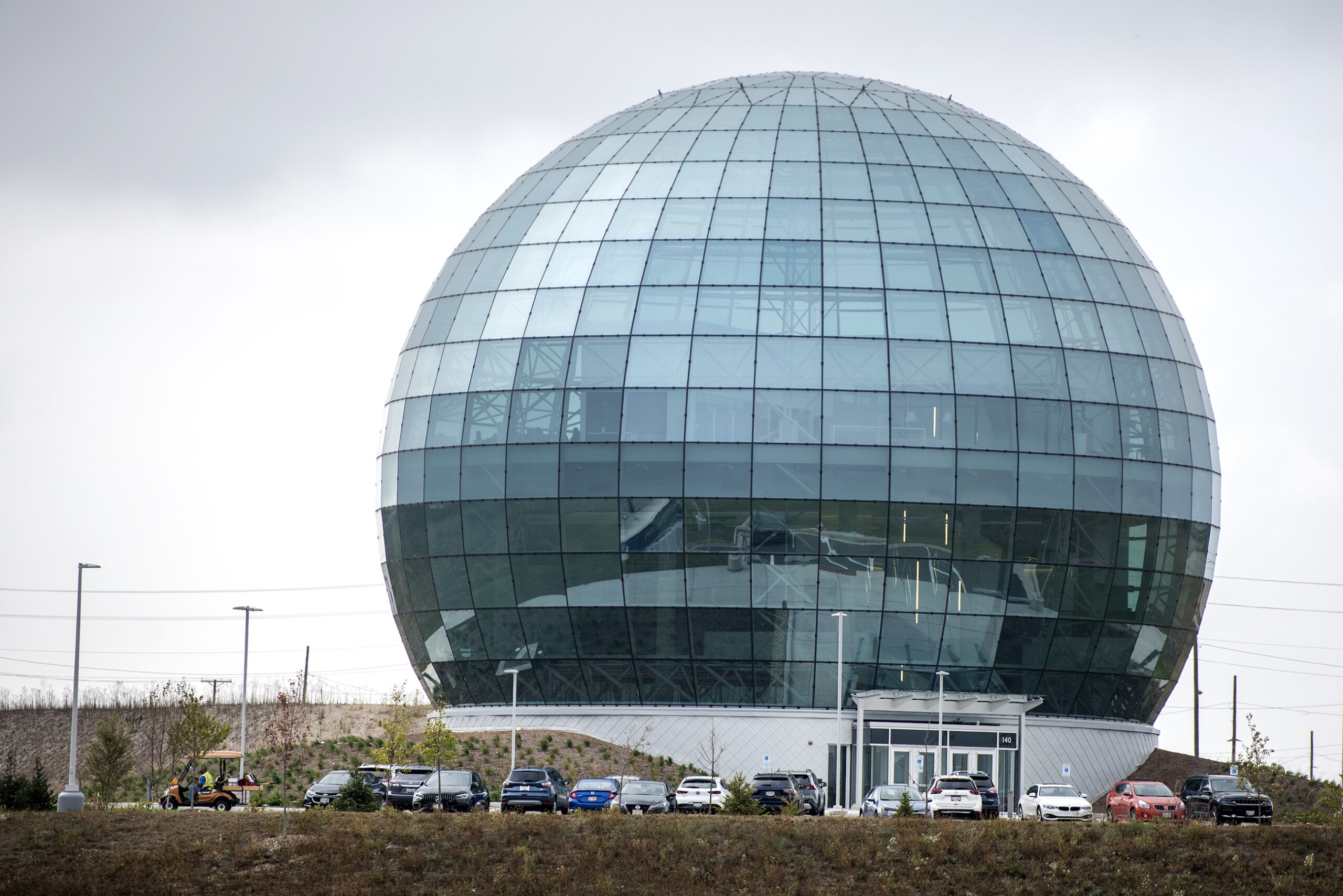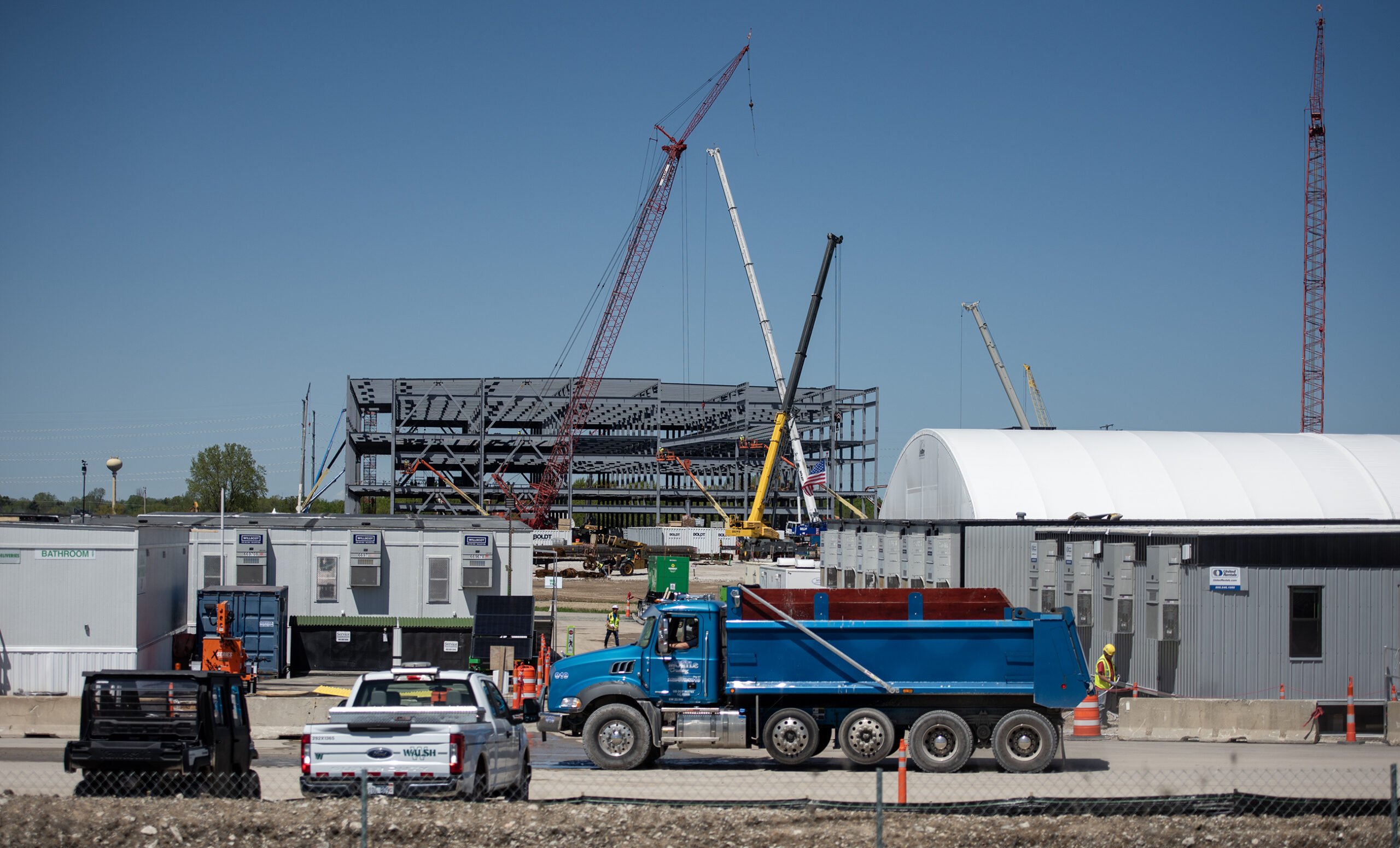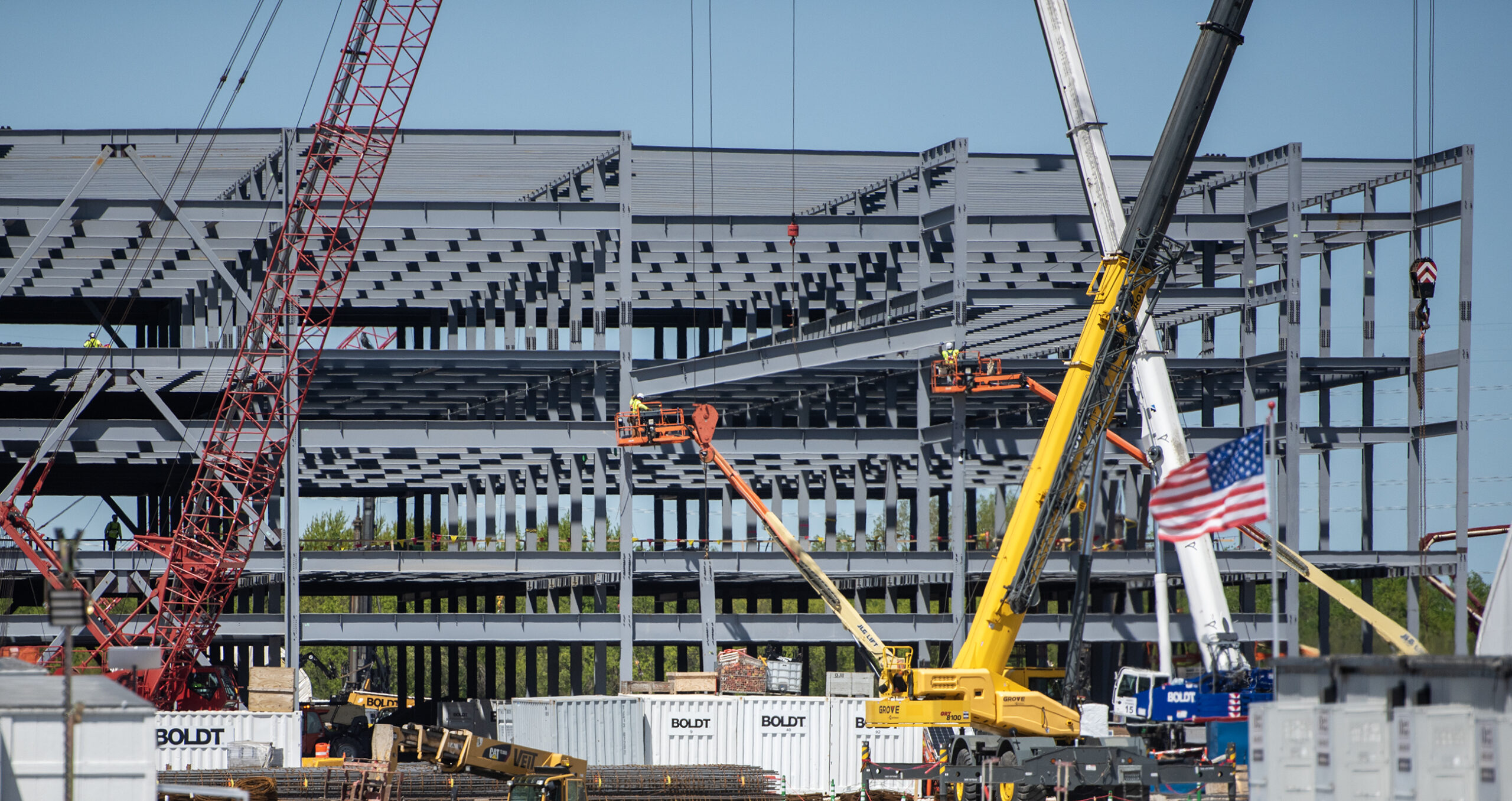Wisconsin’s revised contract with Foxconn would give the company $80 million in tax breaks in exchange for 1,454 jobs by 2024.
This number is significantly lower than the $2.85 billion contract in exchange for 13,000 jobs that was struck by state officials and the Taiwanese tech company in 2017. Since that time, there has been little activity and fewer than 1,000 people hired by Foxconn in the state.
Foxconn is projecting its Wisconsin workers will earn an average wage of $53,875 and the company will invest $672 million in Wisconsin by 2026.
Stay informed on the latest news
Sign up for WPR’s email newsletter.
Gov. Tony Evers said both sides believe this deal is more realistic.
“Today I’m delivering on that promise with an agreement that treats Foxconn like any other business and will save taxpayers $2.77 billion, protect the hundreds of millions of dollars in infrastructure investments the state and local communities have already made, and ensure there’s accountability for creating the jobs promised,” Evers said in a written statement.
In a statement, Foxconn Technology Group officials said they’re pleased with the clarity and certainty that this agreement provides the company, its affiliates, joint ventures and global business partners.
“Foxconn is happy to have worked with the Evers administration to significantly lower taxpayer liability,” the statement said. “Original projections used during negotiations in 2017 have at this time changed due to unanticipated market fluctuations.”
Company officials said they have invested approximately $900 million in Wisconsin, which includes a nearly 1-million-square-foot “advanced manufacturing” facility in Mount Pleasant, an approximately 300,000-square-foot “Smart Manufacturing Center,” an approximately 120,000-square-foot “Multipurpose Building” and an approximately 100-foot tall “High Performance Computing Data Center globe.”
One of the complaints that Racine County residents and some politicians have had with the company is they are unclear what type of work is being done in those buildings.
Even with a revised deal, state and local taxpayers have already spent more than $1 billion on land acquisition, infrastructure and road improvements for the project. The new deal won’t change local agreements with Racine County and Mount Pleasant.
“The current local development agreement continues to provide very strong protections for taxpayers,” Racine County and village representative said in a statement. “At this point, no changes to the local development agreement have been proposed or contemplated.”
An ongoing issue for Foxconn was how specific the original contract was. It didn’t include all the company’s entities, specifically Foxconn International Internet (Fii), the company’s arm that focuses on automation and networking systems for intelligent manufacturing.
Assembly Minority Leader Gordon Hintz said that’s good because Foxconn doesn’t know what it’s building in Wisconsin.
“The incentive package that they received is the one that other Wisconsin businesses and companies received,” Hintz said. “Incentivized job creation and capital investment for jobs that hopefully spur other job growth.”
Assembly Speaker Robin Vos appeared on WISN-TV in Milwaukee over the weekend and said Foxconn is already meeting all of its goals. He accused the Evers administration of playing politics with the contract.
“Foxconn is making concessions because they have their backs up against the wall,” Vos said. “Even though they are meeting the goals that were set by the last administration, by the legislation that we enacted, the governor doesn’t seem to want to keep the state’s deal.”
Vos didn’t return requests for comment.
The original $2.85 billion deal was based on Foxconn’s promise to build a massive $10 billion flat-screen panel manufacturing facility in Wisconsin.
The project has continuously been scaled back. Foxconn executives are now saying they could begin to manufacture electric vehicles for California-based start-up Fisker Inc. in Wisconsin. Although the company said it won’t make a decision until July.
Michael Farren, a researcher with George Mason University who has been studying government subsidies and has focused on Wisconsin’s deal with Foxconn, said it’s tempting, but not realistic for politicians to grow technology hubs when natural resources aren’t there.
“Wisconsin policymakers should focus on providing essentially good soil for all businesses to grow in Wisconsin, rather than trying to plant palm trees in the northern Midwest,” Farren said.
Wisconsin Public Radio, © Copyright 2025, Board of Regents of the University of Wisconsin System and Wisconsin Educational Communications Board.




